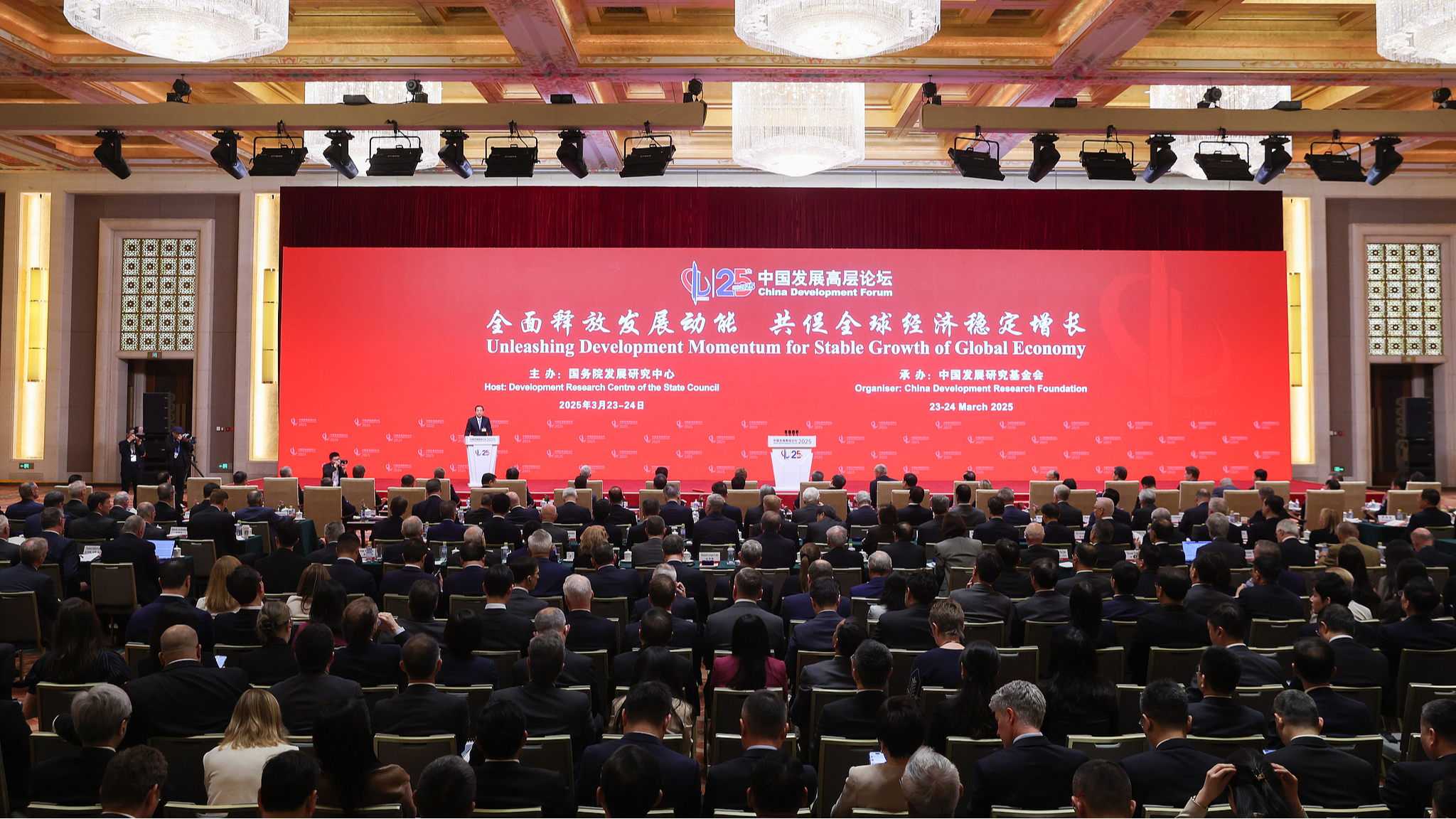Global Perspectives on China's Role in Today's World

Economic Confidence at the China Development Forum 2025
The China Development Forum 2025, as reported by CGTN, served as a significant gathering for global politicians and business leaders, showcasing robust confidence in China's economic future. Hosted by the Development Research Center of the State Council, the forum drew global industry leaders who placed a high value on the Chinese market despite global trends of unilateralism and isolationism.
The event highlighted China’s continuous market opening initiatives and stimulus measures aimed at boosting its economy. Premier Li Qiang emphasized China's intent to expand market access and support foreign enterprises, aiming to play a key role in global economic stability. With participation from a wide range of industries such as financial services, healthcare, and consumer goods, the forum underscored China’s significance on the global economic stage.
The turnout of major corporations—27 American companies and 28 European firms—provided a symbolic endorsement of China's market appeal. These narratives of optimism contrast the rising economic fragmentation elsewhere, demonstrating how China's consistent policies drive global economic integration amid uncertainty. For example, IKEA’s CEO Jon Abrahamsson Ring expressed long-standing partnerships within China, reflecting global industries' expectation to deepen market engagement there.
China-India Relations: A Delicate Balance
The dynamics of Sino-Indian relations are multifaceted, involving historical tensions and recent diplomatic engagements as reported by BBC. Indian Prime Minister Narendra Modi's recent overtures towards bettering relations with China sparked interest, particularly given the serious border conflicts since 2020.
The article maintains a realist view of the improvements being relatively modest given the tense historical backdrop. Both nations continue to navigate a complex political landscape, leveraging multilateral cooperation while maintaining strong bilateral ties. Despite hiccups, China remains India's significant trading partner, highlighting economic interdependence that tempers geopolitical challenges.
The report also points out China’s reactions to Indian strategic partnerships with the U.S. and other countries, which are seen as measures to counterbalance China’s influence in the Indo-Pacific region. This complicated diplomatic dance is central to both countries' foreign policies, indicating a continuous balancing act that influences regional stability. The ongoing border negotiations and high-level dialogues underline this delicate equilibrium, revealing potential pathways towards more stable relations.
France and China: Diplomatic Engagements
On the diplomatic front, a visit by French Minister for Europe and Foreign Affairs Jean-Noël Barrot to China is indicative of Europe's ongoing engagement with China, despite broader geopolitical tensions. This visit, as noted by CGTN, signals a continuation of dialogue between China and European nations aimed at strengthening bilateral ties and addressing mutual concerns.
France's commitment to fostering relations with China comes with careful navigation of EU's broader strategic concerns regarding China's role in global affairs. This reflects a nuanced European approach, balancing economic objectives with broader geopolitical considerations, especially given China's significant influence in various global economic sectors.
The Dalai Lama's Succession and Wider Implications
BBC’s coverage of the delicate issue regarding the succession of the Dalai Lama delves into the complexities of Tibetan spiritual leadership and its political undertones. With Beijing maintaining a strong stance that the next Dalai Lama should be found within China, the issue becomes a focal point for Sino-Tibetan relations.
The article highlights the symbolic struggle over spiritual and political authority that the succession debate entails. This narrative serves as a reminder of the cultural and ideological conflicts underpinning China’s control over Tibet, and the global implications of religious and cultural autonomy within politically contentious regions.
The Dalai Lama’s decision to potentially reincarnate outside of China challenges Beijing’s authority and adds layers to regional autonomy discussions, implicating broader human rights dialogues at an international level. These developments, particularly against the backdrop of next-generation leadership selection, could influence China's diplomatic relations with countries supporting Tibetan autonomy.
Each of these stories underscores the complexities faced in today's global political landscape, where economic ambitions, diplomatic ties, and cultural disputes intertwine, revealing the multifaceted nature of China's role on the world stage.


